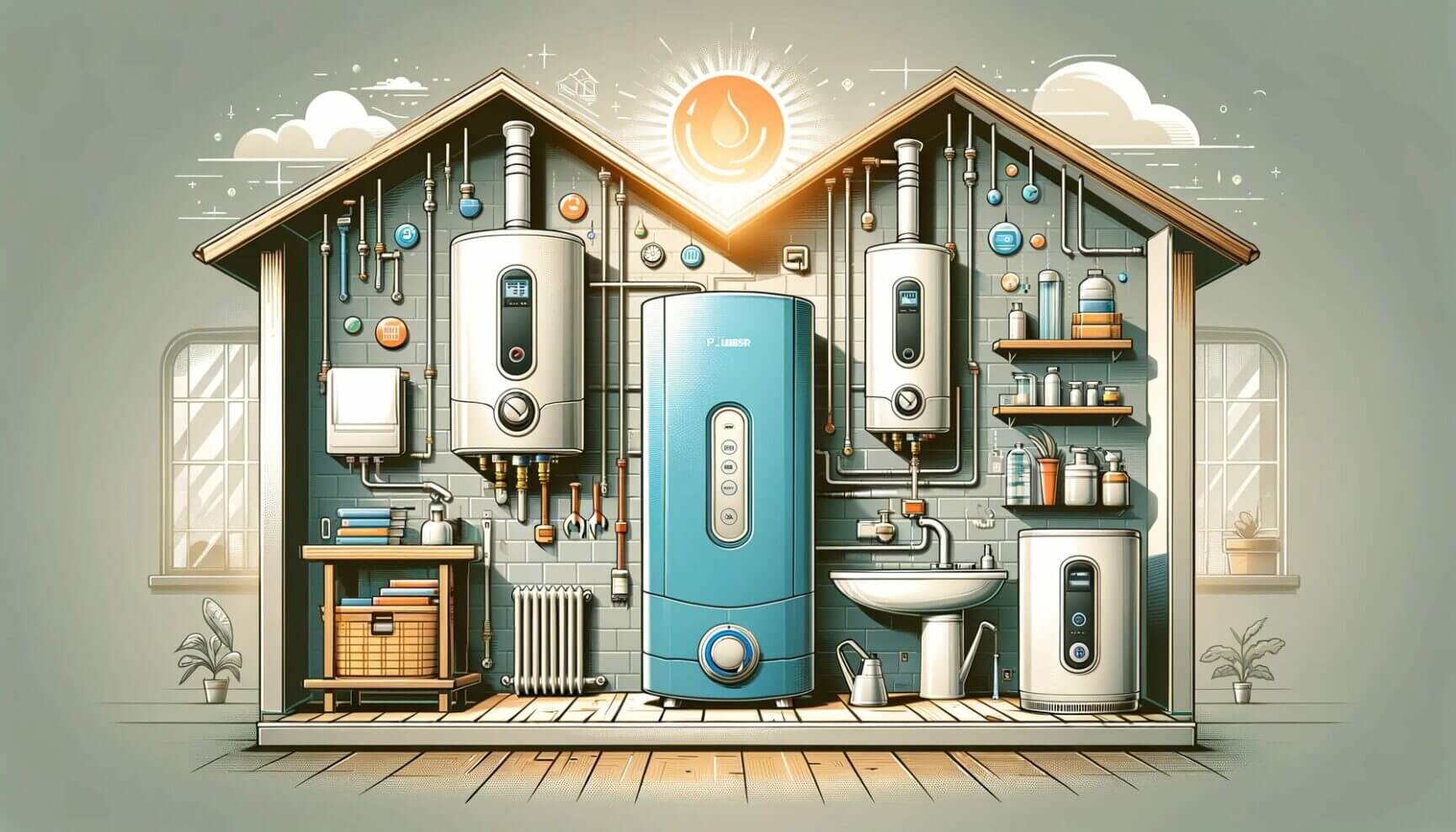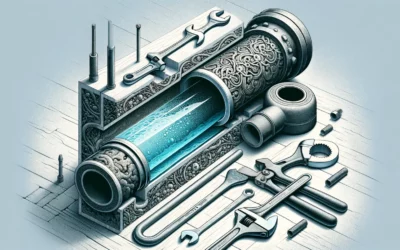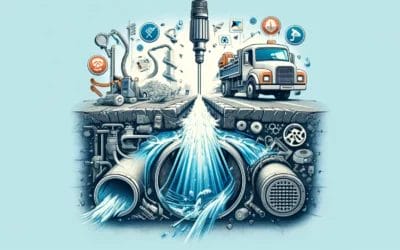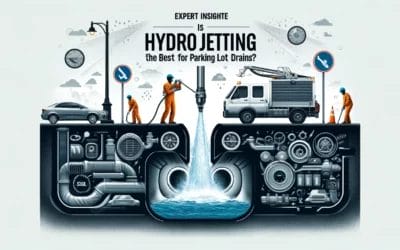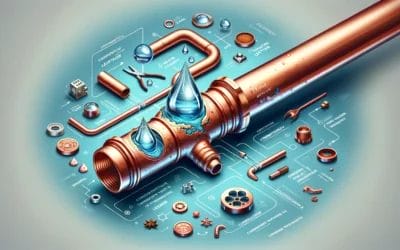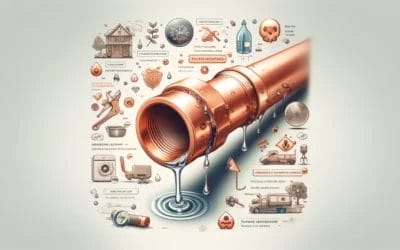Welcome to our enlightening guide, “Choosing the Perfect Tankless Water Heater: A Plumber’s Guide”. In this post, we delve into expert advice and fact-based information about different varieties of tankless water heaters, how they operate, and how to select the one that matches your needs perfectly. This comprehensive guide will help you understand the essence of energy efficiency, longevity, and the environmental impact of your choice. It is designed to empower you with knowledge, allowing you to make a smart and eco-friendly investment for your home. Take a plunge into this useful, easy-to-follow guide packed with everything you need to know, handpicked by professional plumbers. Happy reading!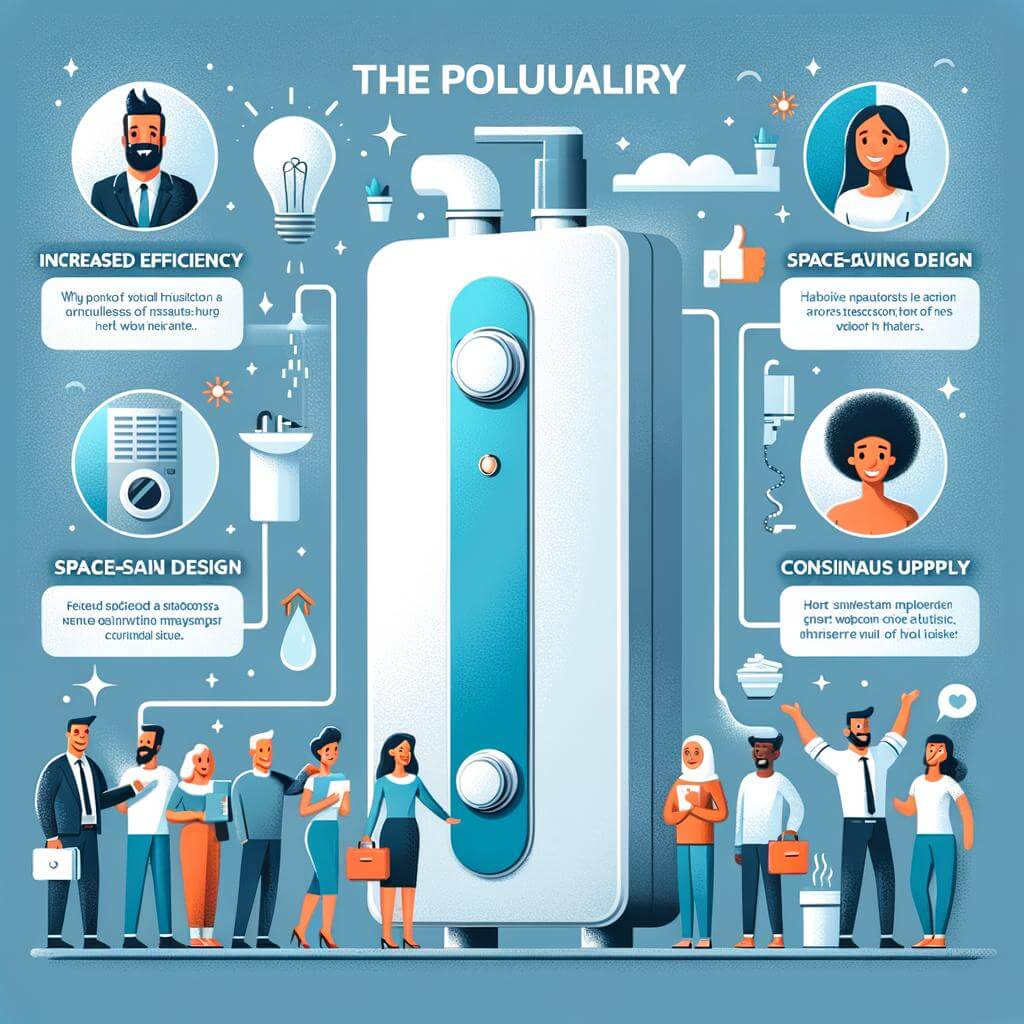
Understanding the Popularity of Tankless Water Heaters
Perhaps one of the reasons why tankless water heaters have become so popular is their energy efficiency. Traditional water heaters continuously heat water, even when you’re not using it. This is known as “standby heat loss” and it consumes a lot of energy. But tankless heaters, as the name suggests, don’t have a tank. Instead, they heat water directly, on-demand. As soon as you turn on the hot water tap, cold water travels into the heater and gets heated by either a gas burner or electric element. This way, no energy is wasted on maintaining the temperature of the water in the tank.
However, while energy efficiency is an attractive benefit, it isn’t the only one. Tankless water systems are known to be durable and reliable. The average tankless water heater lasts about 20 years, which is almost double the lifespan of a traditional unit. Furthermore, they save space. Since there is no cumbersome tank involved, these systems can be installed almost anywhere in the home – even on a wall. The ease of installation together with their durability and energy efficiency explains why many people are opting for tankless water heating systems.
- Durability: Tankless heaters typically last twice as long as traditional models.
- Space-saving: With no tank involved, these systems can be installed in various locations throughout the home.
- Energy efficiency: As they heat water on demand, there is no energy wasted on standby heat loss.
| Features | Tankless Water Heater | Traditional Water Heater |
|---|---|---|
| Lifespan | 20 years | 10-15 years |
| Installation | Various locations | Limited by tank size |
| Energy Efficiency | High (on demand) | Lower (standby heat loss) |

Analyzing the Different Types of Tankless Water Heaters
The modern marketplace presents a range of tankless water heaters to choose from, each with its unique set of advantages. To make an educated purchase, take the time to understand the distinct types and their features. There are primarily three types of tankless water heaters: electric, gas/propane, and hybrid models. Electric tankless water heaters are easy to install, typically smaller in size, and of course, don’t require a gas line. They can, however, strain your electrical system, so it’s crucial to check if your home can support one. Gas/propane heaters are more powerful, able to supply hot water to a larger home. However, they require good venting systems and are generally more expensive upfront. The hybrid models , named as such due to their combination of tank-storage and on-demand water heating, they are energy efficient and can offer a constant supply of hot water.
| Types of Water Heaters | Pros | Cons |
|---|---|---|
| Electric | Easy installation, smaller size, no gas line requirement | Can strain electrical system |
| Gas/Propane | High power, can serve larger homes | Requires good venting system, higher upfront cost |
| Hybrid Models | Energy efficient, constant supply of hot water |
When selecting a tankless water heater, consider your budget, home size, utility availability, and water heating needs. Additionally, think about the potential energy savings. Tankless water heaters can save 24% to 34% more energy than traditional models if your household uses 41 gallons or less of hot water daily. This percentage goes down to 8% to 14% for homes that use a lot more hot water. But they’re still more energy-efficient than traditional models. Also, look at the longevity and the warranty of the equipment. Tankless water heaters are known to last longer (up to 20 years) and usually come with lengthy warranties. The final decision rests with you, equip yourself with knowledge and choose the perfect tankless water heater that meets your needs.
Factors to Consider when Choosing a Tankless Water Heater
In the quest to minimize energy consumption and get hot water on command, choosing a tankless water heater can be your best bet. However, determining which unit suits your requirements most appropriately can be a daunting task. There are numerous factors that you ought to consider. Firstly, it’s crucial to understand your hot water usage . Do a proper analysis of how much hot water you use in a day. This includes the number of showers, the amount of laundry, and dishwashing. Now, not all activities occur at the same time. Hence, calculate the flow rate- which refers to how much hot water you use at any given time. From showerheads to washing machines, each appliance has different flow rates. Next, consider the temperature rise you would need. For example, if your water comes in at 50°F and you want it at 120°F, your temperature rise would be 70°F. Depending on your geographical location, the incoming water temperature can vary greatly.
| Location | Temperature Range |
| Northern States | 35-45ºF |
| Southern States | 55-70ºF |
Considering the fuel type is another paramount factor. Electric tankless water heaters , though less expensive initially, may cost more in the long run due to the high electricity rates. On the other hand, gas-powered heaters demand more upfront investment but may prove to be more economical in the longer term.
- Electric: Less expensive upfront, costly in the long run.
- Gas: More expensive to install, cheaper to run.
Having an idea of your hot water demand, required temperature rise, geographical location, and preferred fuel type will help guide you in your choice of a tankless water heater.
Exploring Brands: A Plumber’s Recommendation
In the vast world of tankless water heaters, a few brands stand out due to their unwavering commitment to quality, performance, and customer satisfaction. From my extensive experience as a professional plumber, I’ve come to trust a handful of brands that I know will deliver reliable performance for years to come. Regardless of the product or the situation, you can confidently choose Rheem, Navien, and Rinnai for their excellent products and well-honed after-sales service.
| Brand | Key Features |
|---|---|
| Rheem | Energy efficient, durable, and easy-to-use |
| Navien | Experience in condensing technology, built-in recirculation systems |
| Rinnai | Cutting-edge technology and safety features |
I would add in the fact that not all brands are created equal in all aspects. For example, Rheem is a standout when it comes to user-friendly designs and easy installations, while Navien is renowned for its high-efficiency systems and recirculation technology making it the perfect choice for large homes. Rinnai, on the other hand, is a big player known for its modern technology that ensures safety and energy efficiency.
| Brand | Best For |
|---|---|
| Rheem | User-friendly design and installation |
| Navien | High efficiency and large homes |
| Rinnai | Safety and energy efficiency |
Selecting the right brand for your needs is essential, but it’s equally important to get the product installed by a licensed professional. A poorly installed unit can lead to inefficiency and will be more likely to need repair down the line. So, do your homework, think about your needs, and then choose accordingly. Happy hot water days!
The Role of Size and Location in Tankless Water Heaters
First, let’s delve into the role of size when selecting the perfect tankless water heater. Ideally, the size should correspond directly with the demand for hot water in your home. This is measured in gallons per minute (GPM). For a smaller home or apartment with one or two residents, a smaller unit that generates approximately 2 to 3 GPM would likely suffice. On the other hand, larger households with multiple bathrooms may require a heater that generates between 8 to 10 GPM. In this sense, the larger the size, the greater the hot water production. Now, moving on to the aspect of location. As a rule of thumb, the closer the heater is to the point of use, the quicker the hot water delivery. This reduces the amount of time and energy wasted in heating the water, subsequently leading to increased efficiency. However, it’s also crucial to consider the environment in which the heater will be installed. For instance, gas-powered models should be securely installed where ventilation is ample. On the other hand, electric models can comfortably fit in smaller areas, such as under the sink or inside a cabinet. Following table provides a general guide to tankless water heater selection on the basis of size and location.
| Home Size | Demand (GPM) | Heater Location |
|---|---|---|
| Small Apartment | 2-3 GPM | Under Sink/ Cabinet |
| Medium Home | 4-7 GPM | Garage/ Utility Room |
| Large Home | 8-10 GPM | Basement/ Exterior Wall |
In conclusion, bear in mind that the proper size and strategic location of your tankless water heater will significantly improve your home’s energy efficiency and supply of hot water on demand.
Installation Tips for Your Tankless Water Heater
Installing your tankless water heater correctly is essential to ensure peak performance and longevity of your unit. Here, we provide some expert tips to set up your tankless water heater smoothly and efficiently. Remember, tankless water heaters should always be installed by a knowledgeable and experienced plumber to avoid any potential safety risks. Choose the Right Location: The location of your tankless water heater is critical for its efficiency. Ensure that it is installed close to the most frequently used outlets for instant hot water. However, do not keep it in an area that is prone to freezing. Necessary Permits: Always check with your local building department for the necessary permits and inspections needed for installing a tankless water heater. Ensure Proper Ventilation: Tankless water heaters need proper ventilation for exhaust gases. Install it in a location with adequate venting facilities or opt for direct vent models which draw air from outside. Consider the Needs of Your Home: Before you choose a tankless water heater, consider the hot water demands of your home. Make sure the unit you choose can handle your needs. Below is a short comparison between gas and electric tankless water heaters:
| Gas Tankless Water Heater | Electric Tankless Water Heater |
| Requires venting | Does not require venting |
| Requires gas line | Requires high electrical capacity |
| Greater upfront cost | Lower upfront cost |
| Higher operation cost | Lower operation cost |
Finally, don’t forget to have your tankless water heater regularly serviced to maintain optimum performance and extend its life span.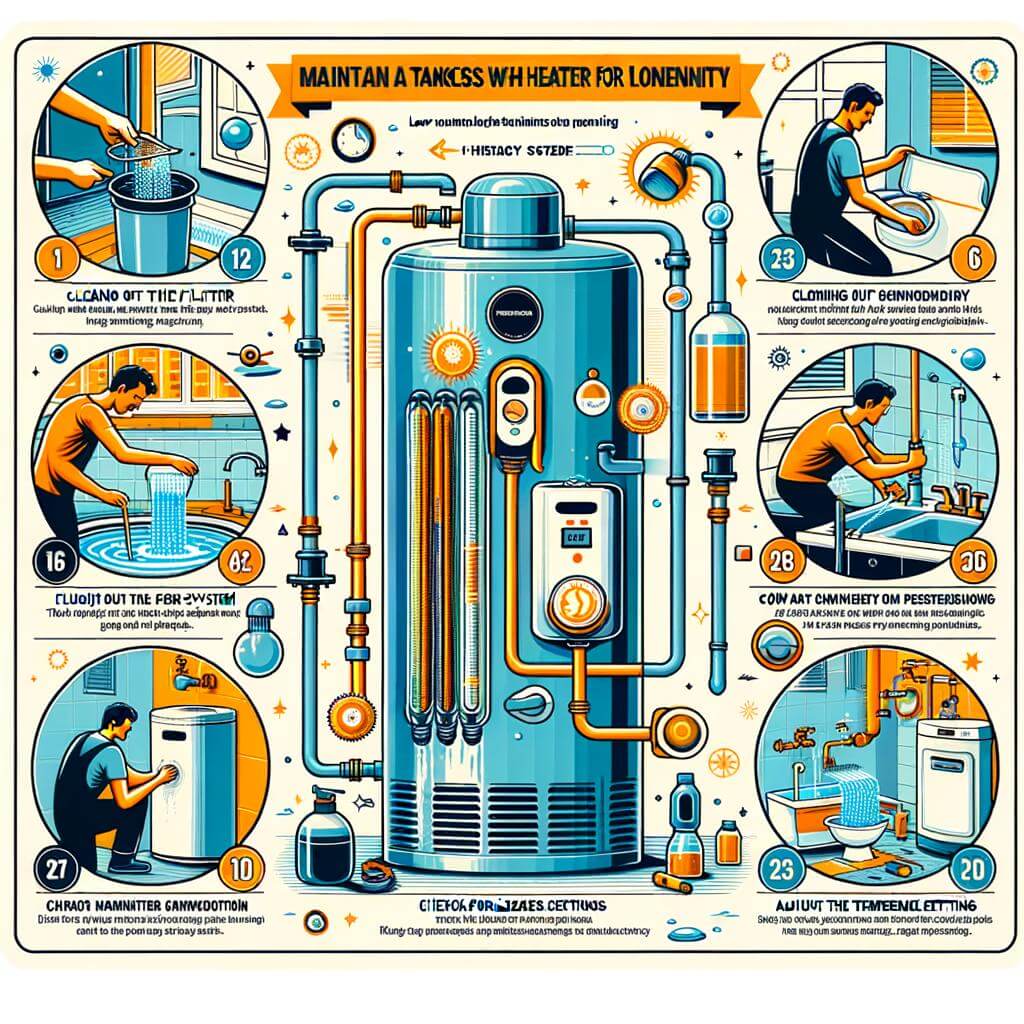
How to Maintain Your Tankless Water Heater for Longevity
Keeping your tankless water heater in optimal condition requires regular inspection and the occasional bit of maintenance. This ensures it works efficiently and extends the lifespan of your heater, saving you money in the long term. A key part of this is descaling, which should ideally be done once a year. If you live in an area with hard water, you might need to do it more often. Descaling helps to remove mineral buildup inside the heater, which can hinder its performance over time. If you’re comfortable doing this yourself, you can buy a descaling kit and follow the instructions. Otherwise, consider having a professional plumber do this. In addition to descaling, it’s also recommended to inspect the air intake, vent exhaust and check the water filter, if your model has one. Maintaining these parts not only ensures the effective operation of your tankless water heater but also enhances the safety of your home. Furthermore, you should have the system inspected by a professional plumber routinely. They may find small issues that could become significant problems if left unattended. Here’s a basic maintenance schedule that you should consider:
| Procedure | Recommended Frequency |
|---|---|
| Descaling | Once a year (or more in hard water areas) |
| Inspect air intake, vent exhaust | Once a year |
| Inspect water filter | Every 6 months |
| Routine professional inspection | Every 1–2 years |
Remember, regular maintenance is the key to ensuring the longevity of your tankless water heater. If you’re unsure about any steps, it’s always better to consult a plumber. It’s a small investment that will pay off in longevity and efficiency of your heater and peace of mind.
To Conclude
In conclusion, selecting the perfect tankless water heater can indeed seem overbearing with the ample options available in today’s market. However, leverage this informative guide to help with your decision-making process. Remember, appropriate sizing, correct installation, maintenance, and understanding the longevity of your tankless water heater are essential considerations. It’s always wise to research thoroughly, assess your home’s needs accurately, and when in doubt, don’t hesitate to seek professional assistance. Take your time, weigh the options, and make an informed, educated decision to maximize your investment and enjoy endless hot water. We hope this plumber’s guide aids your journey in choosing your perfect tankless water heater. After all, nothing beats stepping into that perfectly warm shower on a chilly morning, brought to you by your new tankless water heater. Happy hunting, and stay warm!

